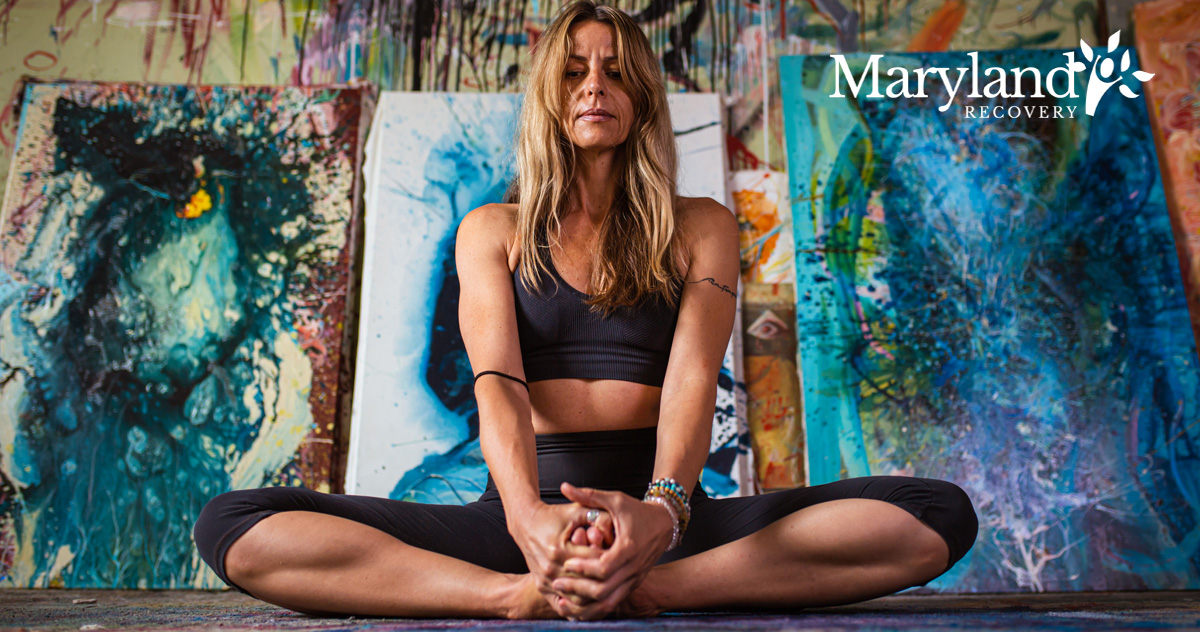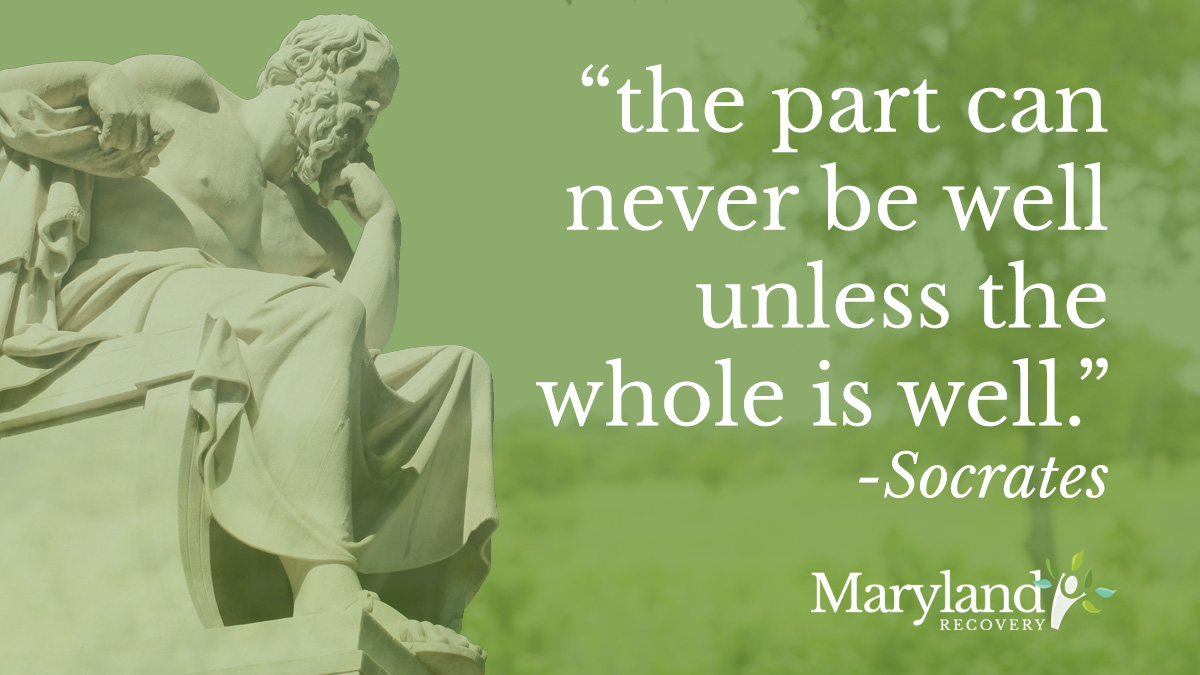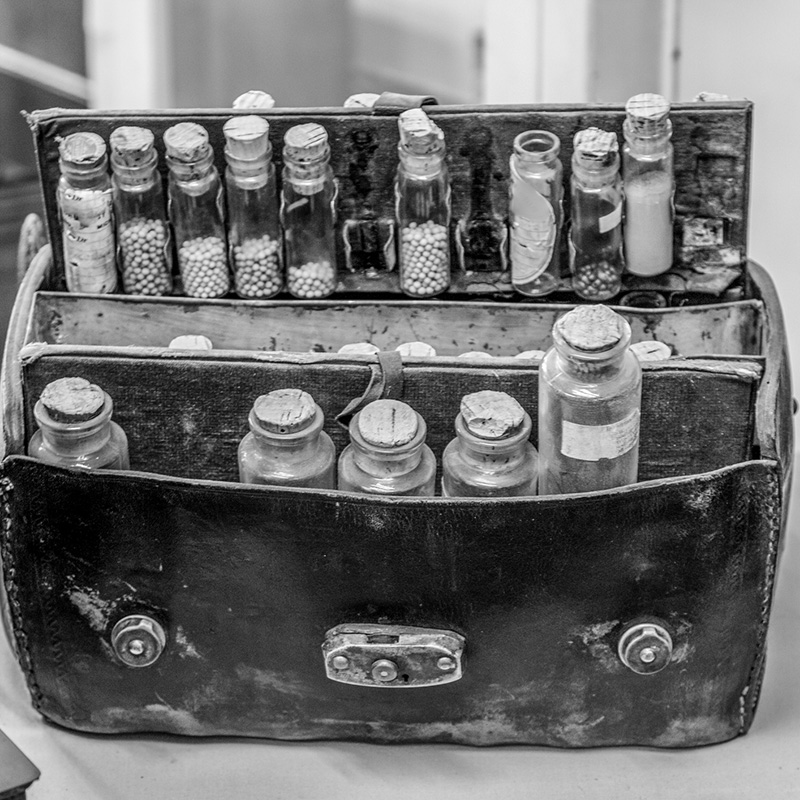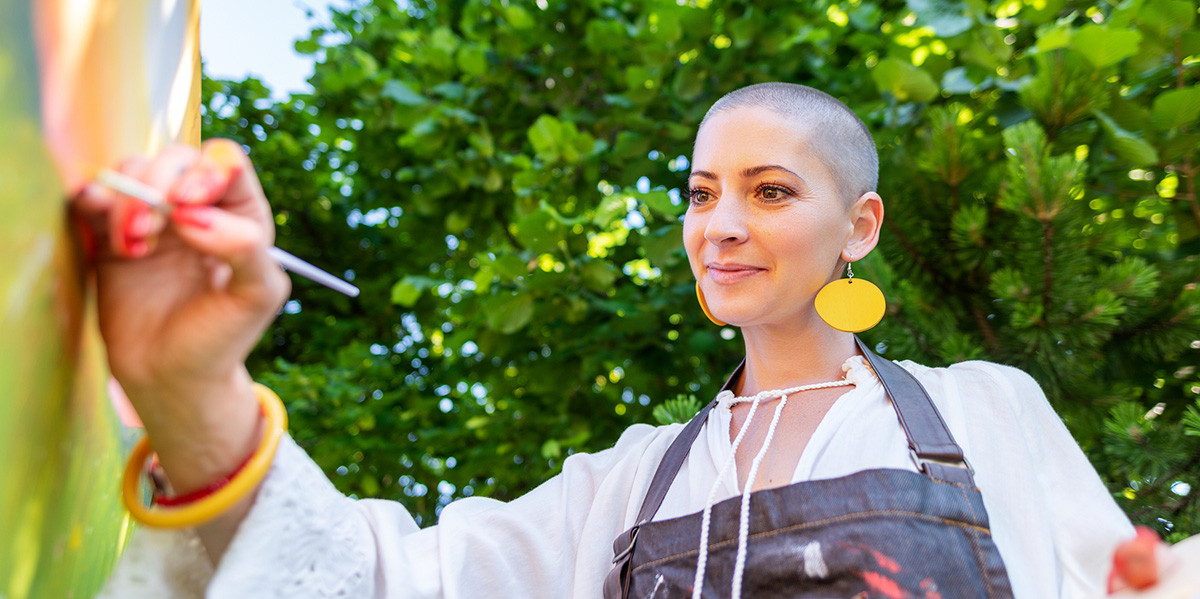 Holistic recovery is a broad term that encompasses many practices. As a result, the clinical professionals at Maryland Recovery are proud to work carefully with each client to tailor a personalized holistic addiction or substance use disorder (SUD) treatment plan. If you or a loved one seeks SUD treatment at Maryland Recovery, we will perform a thorough assessment of your history and create a treatment plan that will treat the whole individual—from addressing SUD and learning life skills to turning a new lifestyle into lasting daily habits.
Holistic recovery is a broad term that encompasses many practices. As a result, the clinical professionals at Maryland Recovery are proud to work carefully with each client to tailor a personalized holistic addiction or substance use disorder (SUD) treatment plan. If you or a loved one seeks SUD treatment at Maryland Recovery, we will perform a thorough assessment of your history and create a treatment plan that will treat the whole individual—from addressing SUD and learning life skills to turning a new lifestyle into lasting daily habits.
So, what does holistic treatment really mean? Why is it so important for recovery?
What Is Holistic Treatment?
It’s important to recognize that holistic health practitioners believe in the idea that healing is most effective when one considers the whole person rather than focusing solely on a specific illness. For that reason, holistic substance use disorder recovery involves a variety of treatments that are designed to address not only SUD symptoms but also other co-occurring disorders, past traumas, and patterns of toxic behavior or thinking. This holistic approach aims to complement your standard SUD treatment and maximize your chances of staying happy and healthy by giving you all the tools necessary to avoid relapse once treatment is complete.

As Socrates once said in the 4th century BC, “the part can never be well unless the whole is well.” Holistic health is greater than an absence of sickness; it is an all-encompassing adjustment of the mind, body, spirit, and environment aimed at improving the overall quality of life. Holistic health has ancient roots from all over the world that allow practitioners to emphasize the importance of emotional and spiritual well-being for achieving bodily health.
For example, Traditional Chinese Medicine (TCM) and Ayurveda, two of the most-documented ancient holistic health treatments, continue to be effective with patients today. Hippocrates, widely known as the father of modern medicine, stressed that nature had a healing effect on humans and encouraged holistic attention to the body rather than merely intervening with the disease process. These two methods of healing were a heated topic of debate for centuries.

After scientists discovered that germs were disease-causing agents and the reason for many illnesses in the 19th century, Western medicine became dominated by medicinal intervention methods. Doctors began to treat disease-causing agents as invasive enemies to be eliminated by penicillin or other drugs. Unfortunately, advocacy for a healthful lifestyle and emotional wellness was put on the back burner. In essence, we began to think that pills were the easy solution to everlasting health.
However, the limitations of these interventionist approaches became clear nearly a century later. Medical professionals pondered why some of these medications caused more harm than the diseases they were supposed to treat and why some conditions seemed to flourish despite intervention with accepted treatments.
As scientists searched for more upstream solutions—the ability to solve problems before they metastasize—they revitalized the concept of holistic treatments. Societies and professional organizations were soon formed to bring about holistic health alternatives for people concerned about their health.
What Is a Holistic Treatment for Substance Use Disorder?
While holistic medicine is applicable to all conditions, it is uniquely powerful within the realm of substance use disorder. Substance use disorder is a disease that breaks down the whole person physically, emotionally, and spiritually. To help you begin recovery and reclaim your life, holistic treatment programs approach addiction from all three fronts.
While on the road to healing from SUD, many people feel that they are not truly capable of recovery. One reason is that substance use has a habit of seeping its way into every corner of life. The desire to use can be triggered by old daily habits, familiar places, or once-cherished people. Without being honest with yourself and your recovery circle, carefully monitoring your own behavior and habits, and having empathy for yourself, it will be a challenge to stay on the path to recovery.
SUD can also be isolating, which is why people who join self-help groups and substance use disorder treatment programs learn how guilt, shame, embarrassment, and self-hate have no place in the recovery process and life in general. Many people are too hard on themselves and feel they no longer deserve what they see as rewards. However, self-care—such as daily healthy habits like proper sleep, a balanced diet, and an exercise routine—is not a reward but an essential component of a happy and healthy life.

Thus, the recovery process is not as simple as a dose of medicine or a session of therapy. These treatments alone do not do a good job of addressing the struggles people like you face on a daily and nightly basis.
Benefits of Holistic Treatment for Addiction Recovery
A holistic approach allows you to access the most effective recovery experience. Holistic therapies as a part of holistic recovery are increasingly adopted by recovery centers to help address mental health, minimize co-occurring disorders that may be the underlying cause of SUD, and help people build a support network, coping methods, new hobbies, and healthy routines.
Still, some people harbor skepticism towards holistic treatments and wonder, “why is holistic treatment good?” and “does it really have a place alongside or in place of Western medicine?” In fact, holistic treatment is scientifically backed. The National Center for Complementary and Integrative Health reported that nearly 40% of American adults chose holistic practices as an alternative to traditional medicine or as a complement to traditional medicine.
Diving deeper into specific holistic treatment practices, Harvard Medical School researchers found that meditation and mindfulness practices like yoga can help improve physical fitness and regulate stress hormones like adrenaline and cortisol. This helped reduce stress levels in patients, making them less likely to self-medicate and develop SUD. Mindfulness and meditation have also been shown to increase impulse control, improve memory, strengthen empathy, and regulate stress. Other forms of therapy, like art therapy, massage therapy, and equine therapy, have been shown to help clients improve mood, reduce stress, and allow patients the chance to develop an understanding of their own emotions and their role in SUD.

Maryland Recovery clinical professionals created our Holistic Remedies ebook to elaborate further on the power of holistic remedies in your journey to recovery. As mentioned in our holistic mental health eBook, holistic therapies and remedies have a major positive impact on mental health. These treatments can help you relieve stress, develop healthy coping mechanisms, and avoid feeling overwhelmed by negative feelings. Holistic therapies can help prevent relapse and even act as an alternative to substance use.
While medication is sometimes necessary when you’re experiencing mental health disorders and SUD, many people seek holistic ways to heal naturally and limit their need for medication. Holistic treatments can also help you increase your self-esteem and self-confidence. By finding a balance between your mind and body, you can once again feel like the best version of yourself.
Under proper supervision, holistic treatment is incredibly safe, which means it can be used alongside medications to treat a variety of disorders. However, once professional treatment is complete, holistic SUD recovery practices can easily translate to the home after a bit of initial guidance. These treatments are also low-cost, convenient, accessible, and easily incorporated into any daily routine.
Examples of Holistic Treatment Techniques
Some popular forms of holistic SUD recovery practices include but are not limited to:
- Meditation
- Mindfulness
- Yoga
- Auricular (ear) acupuncture
- Fine arts therapy
- Adventure therapy
- Music therapy
- Dance therapy
- Drama therapy

Mental health therapies used in holistic SUD treatment include:
- Group therapy
- Individual therapy
- Trauma-informed therapy
- Cognitive behavioral therapy (CBT)
- Dialectical behavioral therapy (DBT)
- Motivational interviewing therapy (MI)
- Motivational enhancement therapy (MET)
- Experimental therapy
- Psychodrama therapy
Holistic treatment programs use these practices to treat the lingering mental effects of drug and alcohol use after initial detox. These effects may include depression, mood swings, insomnia, anxiety, panic disorders, and more. During this time, you can learn to identify risky habits and behaviors, like poor nutrition, lack of exercise, and negative social groups. Physical activity often incorporates mindfulness skills, including activities like pilates and yoga. You may also receive classes for valuable skills like meal planning and meal preparation.
Spiritual activities often focus on learning to calm the mind and still the body. These holistic activities can help you not only address the power drugs and alcohol once had over your life but also help you identify negative lifestyles. Aside from these more alternative activities, most holistic treatment programs also offer traditional therapies.
Types of Holistic Therapy for SUD
Individual Therapy
Getting to the root of substance use disorder and examining the reasons behind your substance use is crucial to recovery. That’s why it’s important to find a treatment program that incorporates both individual and group therapy sessions. Individual sessions allow you to explore issues, both past and present, with the help of a counselor. Learning to change negative thought patterns into positive ones can help you move forward in your recovery.
Some of the subjects counselors and patients may cover together during individual counseling and therapy are extremely sensitive. Therefore, it is often best to cover these topics on a one-on-one basis. These personal individual therapy sessions are crucial as you work through personal feelings and thoughts that have contributed to substance use disorder. Counseling can also help you learn how to be honest and empathetic with yourself.
Group Therapy
Group therapy sessions are only used for topics that can be addressed in group settings. During these sessions, you can work together with others to recognize negative behaviors and habits, then help each other find positive responses for triggers with thoughts and feedback. It is common for people struggling with SUD to start the recovery process by themselves, hoping to prove to themselves and others that they have complete control over their illness. However, this often proves unsuccessful and shows how isolating SUD can be.
By meeting with others who have had similar experiences and listening to their perspective on their position within the recovery journey, you can learn together. Perhaps even more importantly, together, you can come to the realization that none of you are alone in healing, so there is no need for shame or embarrassment. Group therapy sessions can provide you with a safe, non-judgmental space built by you and your peers and fostered by expert counselors and therapists.
Residential Outpatient Treatment
Some people turn to drugs and alcohol because they don’t feel in control of themselves or their environment. That’s why a private and comfortable atmosphere is a key component of finding success in SUD treatment. Here at Maryland Recovery, we believe holistic treatment should extend into all components of your life to increase your chances of recovery.
We’ve chosen the charming town of Bel Air precisely because of its ability to help you focus on getting well with minimal distractions, gradually reclaiming your self-confidence and independence. PHP and IOP programs are perfect for people living in Bel Air or Harford County, as well as Baltimore and Annapolis, with sober housing in Bel Air if needed. Here, holistic treatment can incorporate several dozen AA and NA meetings along with other groups, specialists, and places in the area for improving physical and mental health. Holistic recovery is supplemented by gyms, yoga studios, churches, and scenic hiking areas.

Individualized Care and Support
An effective holistic treatment model should be affordable, tailored to the individual, and provides the type of care that is conducive to long-term recovery. There is no one-size-fits-all treatment program, especially when it comes to holistic recovery. Holistic remedies can fit within a 28-day program, but many people benefit from a three-phase treatment model that provides extended care to help them transition back into life outside the rehab treatment facility. When you or your loved ones are ready to seek holistic recovery, a team of clinical experts will assess your needs and design a program with you in mind.
Can You Fully Recover from SUD and Addiction?
It’s important to note that recovery from substance use disorder is taken one day at a time. And, holistic programs focus on the varied components of SUD, treating the mental, physical, and spiritual aspects of the person.
The holistic approach encourages a higher quality of life and allows you to find recovery. For more information about holistic treatments or how our Addiction Treatment Team can help you or a loved one, contact Maryland Recovery today.
Sources:
Reviewed by Christopher Schwartfigure MS, LGPC, CAC-AD








